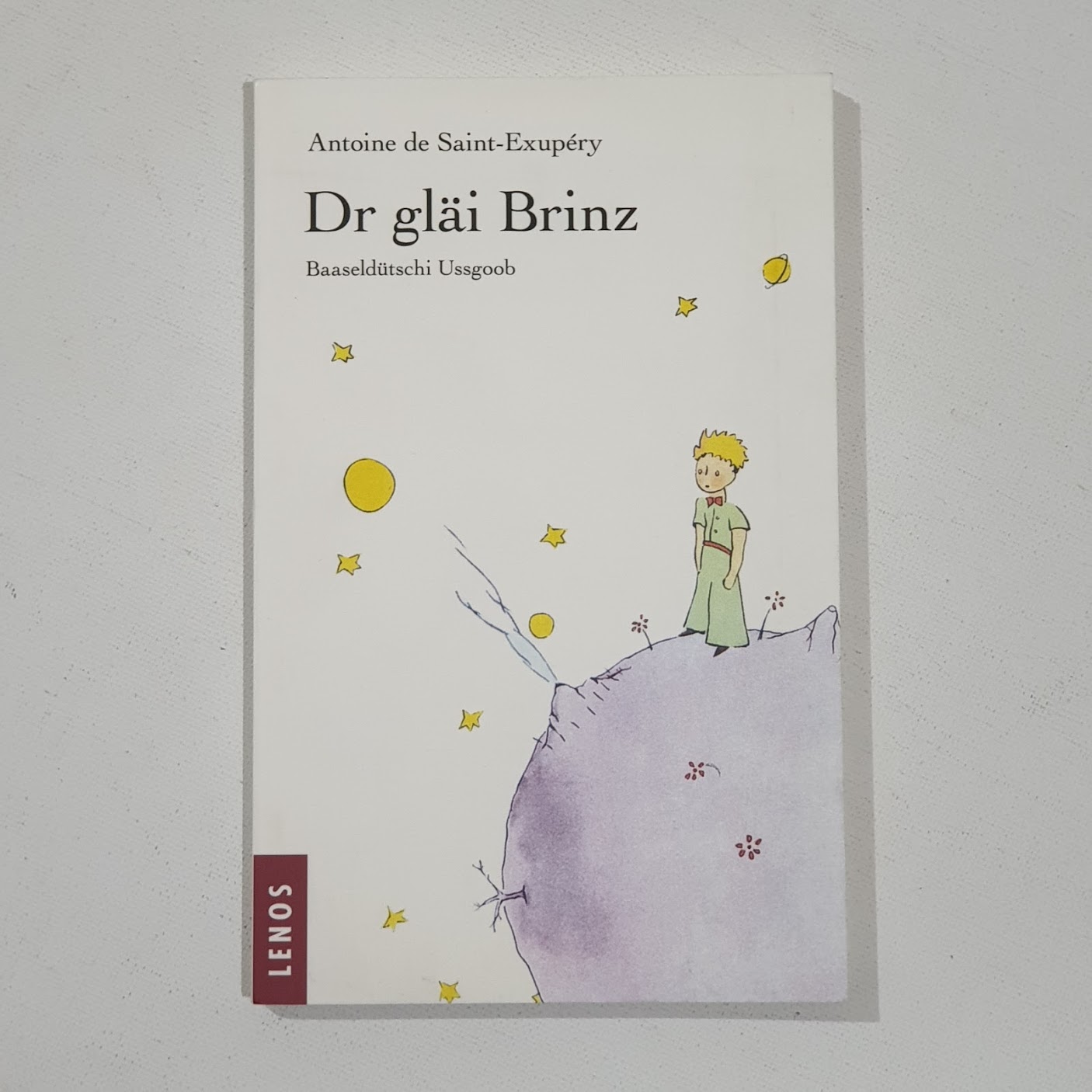
Dr Gläi Brinz – in Basel dialect.
The Basel dialect, known locally as Baaseldütschi, is a variant of Alemannic German spoken in and around the city of Basel, Switzerland. Alemannic is a group of dialects belonging to the Upper German branch of the Germanic language family. The Alemannic dialects vary considerably from Standard German in terms of phonology, grammar, and vocabulary, with the Basel dialect being no exception.
The Basel dialect features several phonetic characteristics distinct from Standard German, including the pronunciation of certain vowels and consonants. For example, Basel dialect often has a more open pronunciation of vowels compared to Standard German and other Swiss German dialects. The dialect includes unique lexical items not found in Standard German or even in other Alemannic dialects. Some words are borrowed from French, reflecting Basel’s geographic proximity to France and its historical interactions. Like other Swiss German dialects, Baaseldütschi exhibits grammatical features that differ from Standard German. This includes variations in the use of articles, verb conjugations, and the formation of plurals.

The Basel dialect is primarily a spoken language used in everyday communication. It is heard in various settings, including at home, in schools among children, and in public spaces. Despite the widespread use of Standard German in formal education and media, the dialect remains vibrant in social interactions. While primarily a spoken dialect, Baaseldütschi does appear in written form, especially in literature, poetry, and informal digital communication. Writers and poets from Basel have contributed to a rich corpus of dialect literature, which plays a role in documenting and preserving the dialect.


